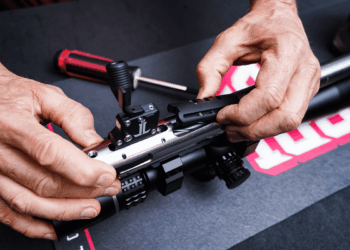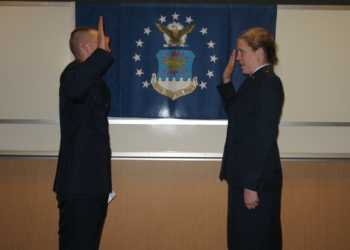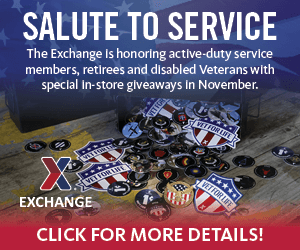Veterans are looking to business ownership as a natural fit for a post-military career.
Nine percent of U.S. businesses are owned by veteran entrepreneurs, according to the Census Bureau’s Survey of Business Owners. The Small Business Administration reports that nearly one third of these firms fall into the industry groups of construction, professional, scientific or technical services. As governmental organizations, and public and private sectors recognize this trend, more assets are being devoted to helping those with military experience apply their skillsets to entrepreneurship.
Veterans are risk takers
John Panaccione, board director for VetToCEO — an organization offering training for transitioning military and veterans contemplating business ownership, says they launched courses in 2012 after the realization that few formal programs existed to help guide this demographic through the process. He said choosing entrepreneurship makes sense for someone who served in the military.
“I boil it down to three things. The first one is we’re crazy to begin with. Less than one percent of the nation
serves this country, as you know, yet we own nine percent of the small businesses in this country… that tells you something,”
he said. “And what I mean by you’re crazy to do that is, you’re crazy to become an entrepreneur, or start or buy a business, but we’ve already proven we’re crazy because we took the road less traveled to begin with by choosing to serve our country. So that kind of implies … we’re not afraid to go against the grain or do things most people won’t do.”
Additionally, he adds that veterans have demonstrated through their service that they’re willing to fail and they have a mission-first mentality.
“Whether you’re a NCO or a junior officer, you’re trying to get the job done and you got to deal with … the people who work for you, the people who don’t work for you, and then you got to deal with civilians around you, higher commanders. It’s a mentality where you’re used to working with multiple stakeholders to get the job done at all costs,” Panaccione said. “Running a business is no different. You got investors, customers, employees, bankers and they’re all sometimes at odds with each other, yet you got to get them to work together to accomplish the mission.

Overcome barriers
Panaccione, an Army veteran, has seen shared challenges amongst the veterans he has worked with through VetToCEO, more commonly in areas of finance, marketing, and cash.
“The military doesn’t teach us anything about finance. [For] most of us, the concept of marketing is foreign to us. In VetToCEO we link that to intelligence gathering. Marketing and finance are weaknesses. It’s actually the core of our program,” he said. “And cash — it’s probably the most important because no one joins the military to develop a huge pile of capital. But that’s not the end of the world.”
VetToCEO modules cover these topics as part of its core entrepreneurship program, lasting seven weeks. Live online sessions feature a guest speaker, who is also a certified veteran entrepreneur. The programs run throughout the year and registration can be completed online.
Do your homework
Panaccione says one of the main benefits of taking the course is to evaluate if a business idea should come to fruition at all. Within the 18 groups the organization has worked with, often times veterans rush through the evaluation process.
“Don’t be a bull in a china shop, we get a lot of that because these folks are very driven. They have this idea and they just want to put it in place and actually they rush … to get this great idea implemented without really doing your homework, without really putting it through the filters it needs to go through to make sure it’s a good idea,” he said.
There are three main ways to pursue entrepreneurship: a start-up, a franchise, or buy an existing business. He said each one has advantages and disadvantages. Evaluate the pros and cons to see which route is the best fit for the business idea.
Pinpoint your passion
Veteran Travis McVey, who served in both the Army and Marine Corps, made the decision to start his own company after recognizing he wasn’t enthusiastic about the work he was doing post-military.
“After I got out of the Marines, I kind of got caught up in life and focused on getting a good job that paid well and got stuck in job I really had no passion in,” he said. “I wasn’t using the talents I developed in service.” In 2009, he started Heroes Vodka — an American-made spirit sold online and at brick-and mortar locations, after enduring the life-changing event of losing a close friend in Afghanistan. It made him realize he wanted to find purpose; one that could give back in a way that paralleled how he felt about military service. McVey decided he would pursue his vision of the American dream by owning a business. The brand, which is headquartered in Nashville, Tenn., gives back a portion of profits for every purchase to veterans through a partnership with AMVETS.
However, McVey emphasizes that entrepreneurship is not for the faint of heart, which is why he advises other veterans to be sure they are ready to dive in. He says in order to be successful there will be long hours and plenty of sacrifice.
“That is why you truly need to find out what you are truly passionate about … being an entrepreneur isn’t for everybody. Like one my business mentors says, ‘If it was easy everybody would be doing it,’” McVey said. “Another important thing is learning to say no. You will be pulled in many directions by family, friends, strangers and even yourself. Stayed focused on your goals and your mission and always know your limitations and surround yourself with people smarter than yourself.”
He recommends veterans considering business ownership to check out Bunker Labs – a nonprofit organization providing entrepreneurship education and resources to veterans looking to start or grow businesses. Information can be found online at https://bunkerlabs.org/.
VetToCEO upcoming programs:
The organization’s 2017 program kicked off in January. It is free for all veterans, and includes self paced modules virtually. The link to get more information about the year round curriculum offerings is http://www.vettoceo.org/coreprogram.
Additional resources:
The Small Business Administration has resources specifically geared to veteran owned businesses. Topics such as writing a business plan and researching funding can be found at https://www.sba.gov/.
Boots to Business is offered as part of the Department of Defense’s Transition Assistance Program, this two-day course is open to all military branches: https://www.sba.gov/offices/headquarters/ovbd/resources/160511.
Institute of Veterans and Military Families has several free program for transitioning service members, veterans, and their families, to include entrepreneur bootcamp: http://vets.syr.edu/education/.
V-WISE for aspiring female entrepreneurs: A three-phase program open to female service members, female veterans, and female dependents of active duty military members: http://whitman.syr.edu/vwise/.
Read comments










































